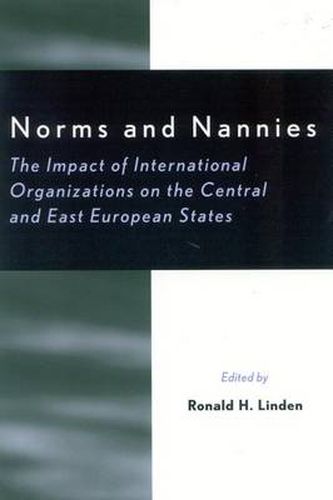Readings Newsletter
Become a Readings Member to make your shopping experience even easier.
Sign in or sign up for free!
You’re not far away from qualifying for FREE standard shipping within Australia
You’ve qualified for FREE standard shipping within Australia
The cart is loading…






As they seek to join the West, the Central and East European states face challenging expectations for domestic and international political behaviour. Key Western organizations, especially the European Union and NATO, hold out the promise of membership in return for adherence to specific European norms and standards. The benefits of membership are high, generating equally high pressure on governments to adopt Western norms. In this comprehensive study on the subject, contributors examine how this process operates in a variety of domains, including civil-military relations; social, labour and regional relations; economic and information policies; and foreign policy. Each contributor considers, inter alia, what norms are generated by (or absent from) European international organizations; how they are communicated to prospective members; and, most importantly, what impact they have had on the policies and actions of individual countries as well as on the region as a whole. Drawing from both Central and Southeastern Europe, these studies seek to provide the empirical foundation needed to support theories of norm diffusion, constructivism, and liberalism in international relations and comparative politics alike.
$9.00 standard shipping within Australia
FREE standard shipping within Australia for orders over $100.00
Express & International shipping calculated at checkout
As they seek to join the West, the Central and East European states face challenging expectations for domestic and international political behaviour. Key Western organizations, especially the European Union and NATO, hold out the promise of membership in return for adherence to specific European norms and standards. The benefits of membership are high, generating equally high pressure on governments to adopt Western norms. In this comprehensive study on the subject, contributors examine how this process operates in a variety of domains, including civil-military relations; social, labour and regional relations; economic and information policies; and foreign policy. Each contributor considers, inter alia, what norms are generated by (or absent from) European international organizations; how they are communicated to prospective members; and, most importantly, what impact they have had on the policies and actions of individual countries as well as on the region as a whole. Drawing from both Central and Southeastern Europe, these studies seek to provide the empirical foundation needed to support theories of norm diffusion, constructivism, and liberalism in international relations and comparative politics alike.